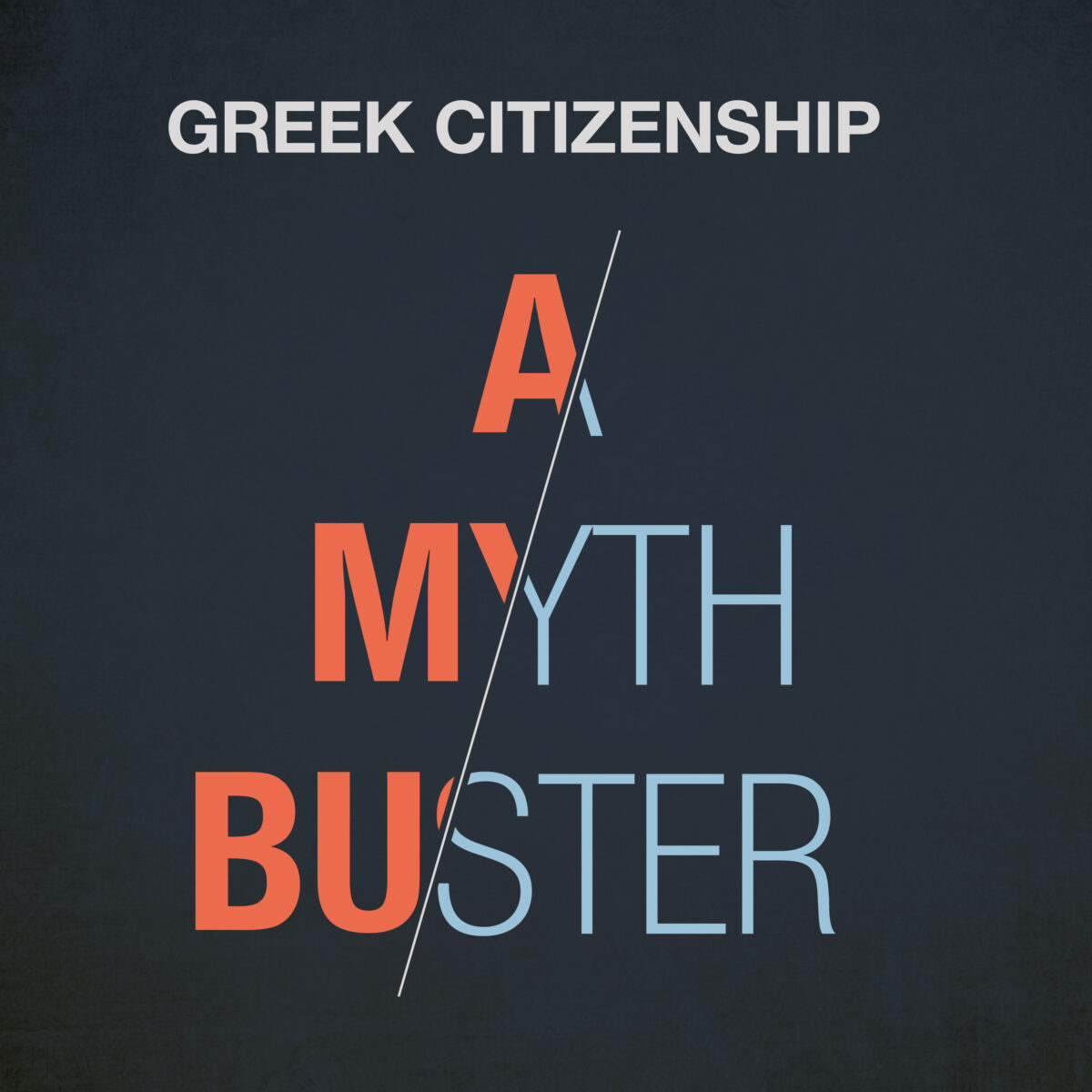Greek Citizenship: A Mythbuster


Is there a difference between Citizenship and Nationality? Is everyone born in Greece automatically entitled to Greek citizenship or must they meet more conditions? Do they receive a national ID within a few months? And what about honorary naturalizations? How easy is it to become a Greek after all?
How much do we really know about Greek citizenship?
The publication “Greek Citizenship: A Mythbuster” aims to fill the information gap and the lack of meaningful dialogue on an issue that concerns us all: citizenship.
It presents some of the basic stereotypes and misconceptions that surround migration, inclusion and citizenship, views that are reproduced through public debate and the media and finally have often been established in the common perception as truth. This publication aims to answer these questions, using documented evidence that originate from legislation and from the continuous monitoring of issues related to Greek citizenship, to debunk non-valid perceptions.
The publication “Greek Citizenship: A Mythbuster” forms part of the project, “Citizenship in practice.” Generation 2.0 for Rights, Equality & Diversity is responsible for its creation and production, to which the Hellenic Union for Human Rights also contributed.
The project “Citizenship in practice” responds for the first time to the need of evaluation towards the administrative process of citizenship acquisition in Greece, in order to contribute to equal access to this right. The project seeks to find and propose ways and solutions for the public administration to improve this process. At the same time, it aims to inform the public about the important issue of effective access to citizenship.
You can read the publication “Greek Citizenship: A Mythbuster” here.
The views and opinions expressed in this article are those of the authors and do not necessarily reflect the position of the EEA Financial Mechanism or the Fund Operator of the Active citizens fund program in Greece (Bodossaki Foundation in consortium with SolidarityNow).
The project “Citizenship in Practice” is being implemented under the Active citizens fund program, by Generation 2.0 for Rights, Equality & Diversity, and its partner, the Hellenic League for Human Rights.
The Active citizens fund in Greece is supported through a € 13.5 m grant from Iceland, Liechtenstein and Norway as part of the EEA Grants 2014 – 2021. The programme aims to develop the sustainability and capacity of the civil society sector in Greece, and to strengthen its role in promoting and safeguarding democratic procedures, active citizenship and human rights. The Fund Operator for the Active citizens fund in Greece is Bodossaki Foundation in consortium with SolidarityNow.
More information: www.activecitizensfund.gr/en/

 Ελληνικά
Ελληνικά

